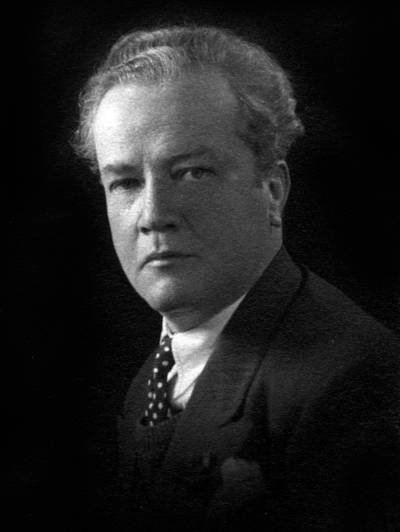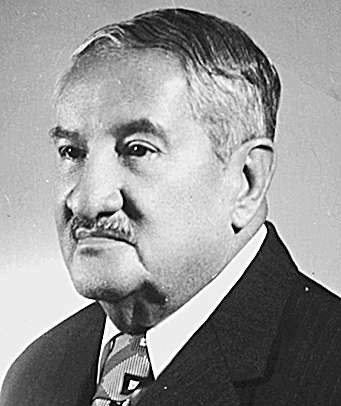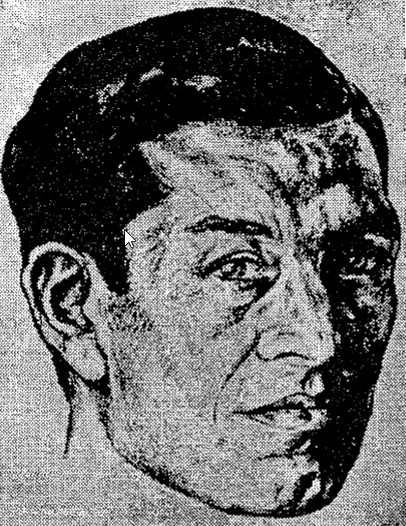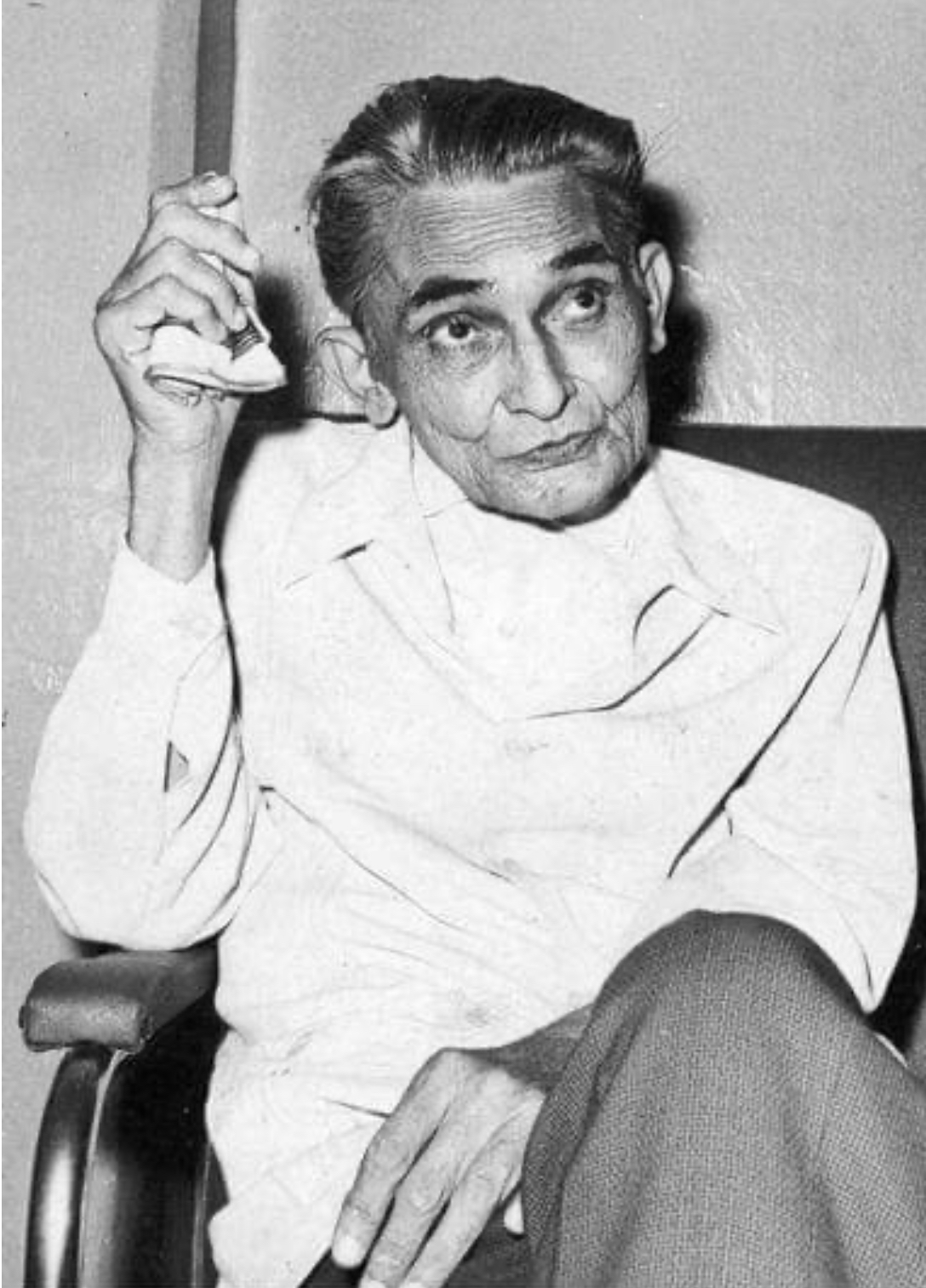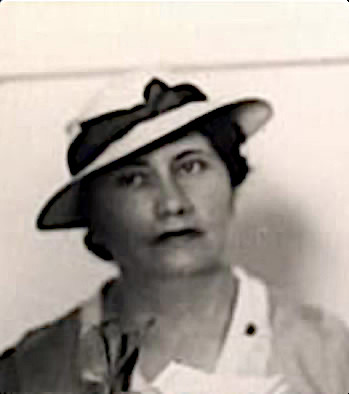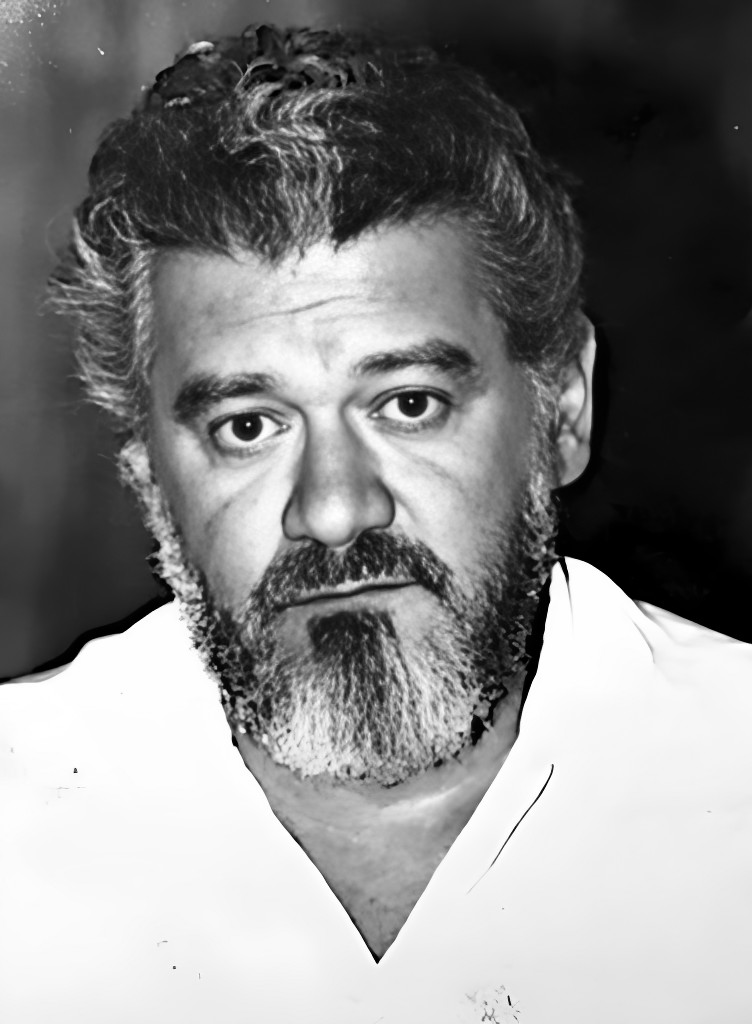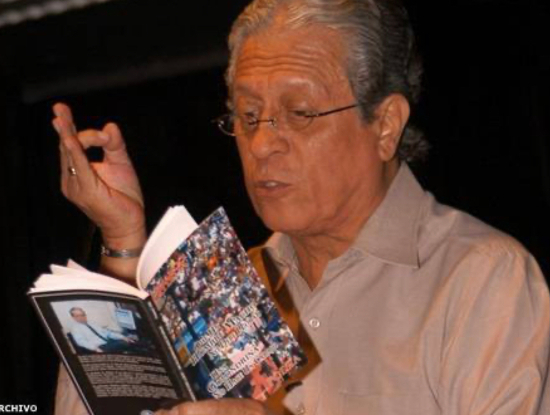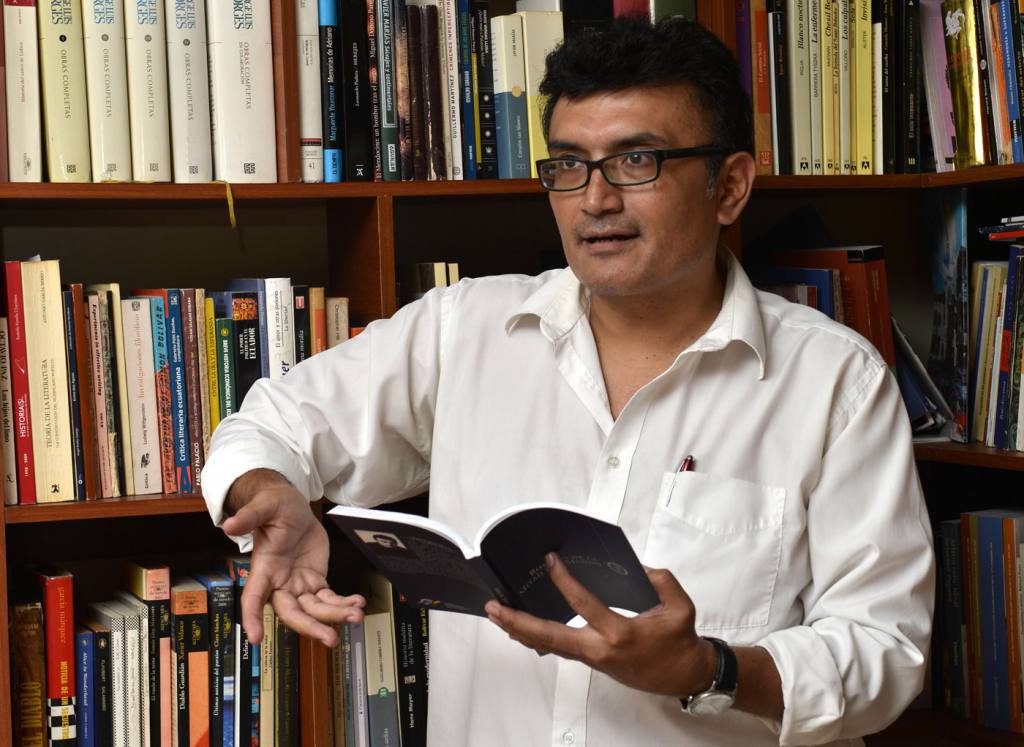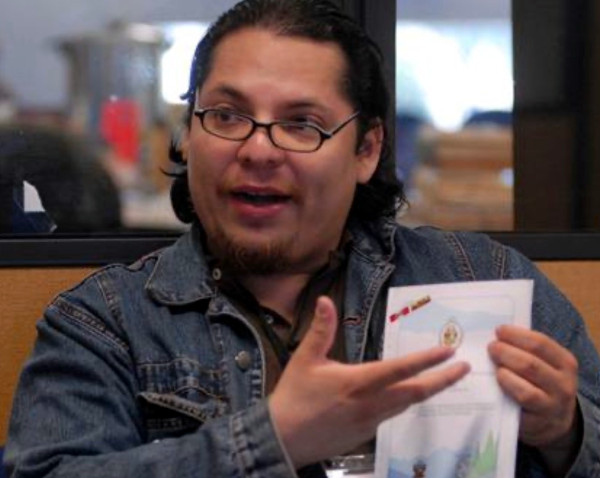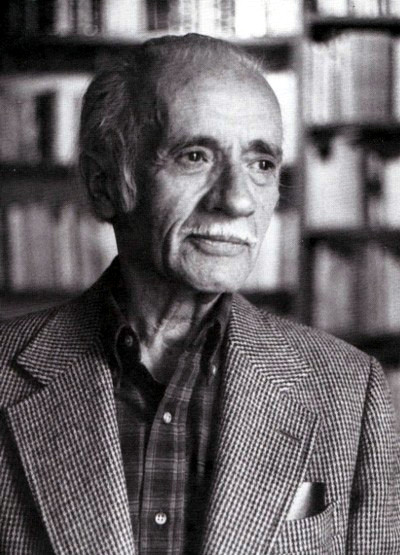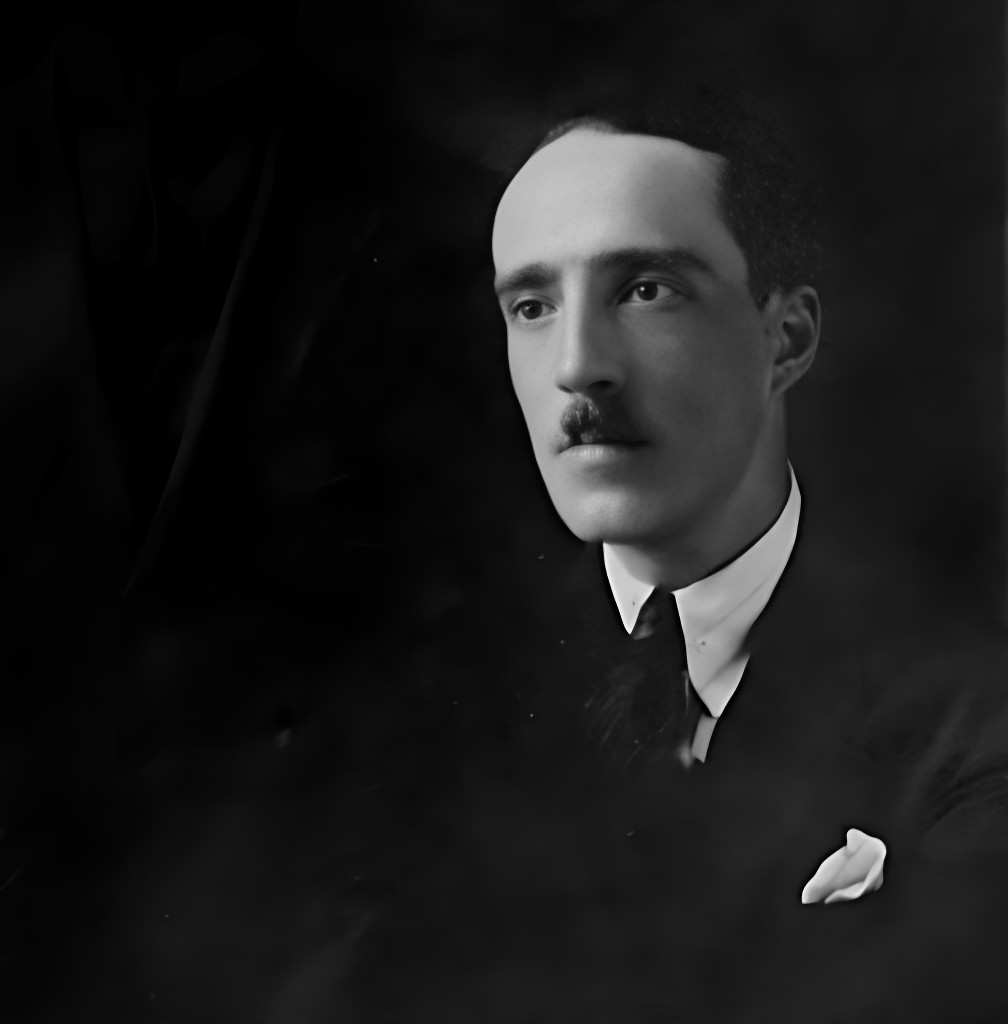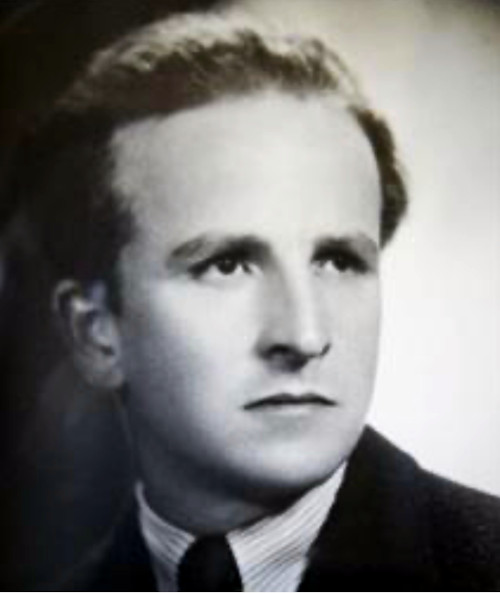Dr. Wenceslao Pareja y Pareja (Guayaquil, September 1, 1880 – Quito, February 26, 1947) was an Ecuadorian doctor, medical researcher, writer and poet. As a doctor, he was one of the world’s leading experts on yellow fever, and was nominated for a joint Nobel Prize in Science for his research work with Hideyo Noguchi. Pareja published 4 books of poems. His 1912 polemic poem “Exodo,” which was published in El Guante magazine, is among the first poems to introduce modernismo in Ecuador. Pareja’s poem “La voz del río” from his first book, Voces Lejanas y otros poemas (1915), best exemplifies modernismo in his poems.
Continue reading “Wenceslao Pareja”Category: Writers from Guayaquil
Abel Romeo Castillo
Abel Romeo Castillo y Castillo (Guayaquil, January, 22 1904 – Guayaquil, November 11, 1996) was an Ecuadorian writer, historian, biographer, journalist and poet. He was the son of José Abel Castillo Albornoz, the former owner of the newspaper El Telégrafo. Castillo earned a doctoral degree in history in 1931 from the Central University of Madrid, Spain. Among his more notable books are his biographical works on Medardo Ángel Silva, Aurora Estrada i Ayala and José Joaquín de Olmedo, to name a few. His poems “Romance de mi destino” and “Romance criollo de la niña guayaquileña,” were turned into popular pasillo songs. Castillo was one of the founders of the Society of Independent Artists and Writers, and of the Guayas branch of the House of Ecuadorian Culture. Castillo was a member of the Ecuadorian Academies of Language and History.
Continue reading “Abel Romeo Castillo”José Alfredo Llerena
José Alfredo Llerena (Guayaquil, 1912—Quito, 1977) was a distinguished Ecuadorian poet, journalist, fiction writer, art critic, and essayist. A member of the Elan literary group, he is recognized as a key figure in Ecuador’s modernist movement. His most notable work, the poetry collection “Agonía y paisaje del caballo” (1934), features 18 of his poems. In addition to poetry, he wrote the novel “Oleaje en la tierra” (1955) and the short story collection “Segunda vida de una santa” (1953). His contributions to nonfiction include “Aspectos de la fe artística” (1938) and “Ecuador, perfil de su progreso” (1960).
Continue reading “José Alfredo Llerena”Enrique Segovia
Enrique Segovia Antepara (Guayaquil, 1901-Guayaquil, December 6, 1967) was an Ecuadorian poet. Known for his work, “América,” published in 1939, Segovia had a tumultuous life marked by addiction to morphine, cocaine, and alcohol. Rodolfo Pérez Pimentel, a prominent chronicler of Guayaquil, recalled seeing Segovia in their neighborhood during his childhood, describing him as a pale, thin, and poorly dressed figure resembling a zombie. According to writer José Ayala Cabanilla, Segovia was frequently spotted wandering the streets barefoot, clad in tattered clothing, under the influence of drugs or alcohol. To make a living, he would offer his services as a writer of love letters for a sucre each and Quinceañera speeches for 10 sucres each. A few months prior to his death, the Guayas branch of the House of Ecuadorian Culture published “Mis mejores poesías” (My Best Poems), a collection of Segovia’s poems written between 1920 and 1967.
Continue reading “Enrique Segovia”Adelaida Velasco Galdós
Adelaida Velasco Galdós (Guayaquil, 1894 – December 26, 1967) was an Ecuadorian writer, feminist, and humanist. She is recognized her dedication to Catholic Christian feminism. In 1932, Velasco co-founded the Legion of Popular Education alongside writer Rosa Borja de Icaza. This organization aimed to promote education and empower women in Ecuador. Additionally, in 1936, she represented Ecuador in the Inter-American Commission of the “Women’s International League for Peace and Freedom” in Washington D.C. Starting in 1939, Velasco initiated a campaign to nominate Gabriela Mistral, a renowned Chilean poet, for the Nobel Prize in Literature. Her efforts proved successful when Mistral became the first Latin American author to receive the prestigious award in 1945. Mistral later acknowledged in various interviews that it was Adelaida Velasco who had originally proposed her nomination for the Nobel Prize.
Continue reading “Adelaida Velasco Galdós”Pedro Saad Herrería
Pedro Saad Herrería (Guayaquil, September 16, 1940 – Quito, June 6, 2014), was an Ecuadorian writer, filmmaker, politician, diplomat, historian and journalist. He was the son of Ecuador’s communist party leader, Pedro Saad Niyaim. He authored several books, such as “Historias del pueblo de Guayaquil” (2010), “Ecuador un país en imágenes/Ecuador a Country in Images” (2002, in Spanish/English bilingual edition), and “La caída de Abdalá” (1997), among others. In April 2014, Saad was honored by the Voltaire Masonic Lodge at the House of Ecuadorian Culture in Quito with the Cultural Merit Medal for his extensive and prolific intellectual career.
Continue reading “Pedro Saad Herrería”Kristel Ralston
Kristel Ralston (Guayaquil, 1984) is a bestselling writer of more than 25 contemporary romance books. Her novel “Lazos de cristal” was one of the five manuscripts on the shortlist for the Second Literary Contest of Indie Authors (2015), sponsored by Amazon, Diario El Mundo, Audible and Esfera de Libros. This contest received more than 1200 manuscripts from different literary genres of Spanish speakers from 37 countries. Kristel was the only Latin-American among the five finalists of the contest. Ralston was also on the shortlist for the romantic novel contest Leer y Leer 2013, organized by Vestales publishing house from Argentina, and she is co-administrator of the literary blog Escribe Romántica. Ralston has published several novels. A prestigious Ecuadorian magazine nominated her as one of the Women of the Year 2015 in the Art category for her literary work.
Continue reading “Kristel Ralston”Fernando Artieda
Fernando Artieda Miranda (Guayaquil, June 14, 1945 – April 15, 2010) was an Ecuadorian writer, poet and journalist. For 40 years he worked as a journalist for newspapers and magazines such as La Razón, Expreso, Meridiano and Hoy, as well as television media such as Ecuavisa and RTS. During the presidency of Abdalá Bucaram he was the secretary of communications.
Continue reading “Fernando Artieda”Leira Aráujo Nieto
Leira Aráujo Nieto (Guayaquil, 1990) is an Ecuadorian poet, writer, screen writer, actress, literature professor, and researcher. In 2015 she published her first poetry book, “Caníbales.” That same year her poetry collection, “Última noche en el país de los hoteles,” won the Ileana Espinel Poetry Prize. Her poems have been published in various national and international anthologies. She earned a PhD in Spanish Language and Literature from the University of Granada (Spain). She currently lives in Granada, Andalusia, Spain.
Continue reading “Leira Aráujo Nieto”Solange Rodríguez
Solange Rodríguez Pappe (Guayaquil, Ecuador, 1976) is an Ecuadorian writer and professor known for her short fiction in the genres of fantasy, horror, and the strange. She has published several acclaimed collections, including Balas perdidas (2010), which won the Joaquín Gallegos Lara Award for Best Storybook of the Year. A longtime educator, Rodríguez has also been honored with the Matilde Hidalgo Prize for her academic career. Her works often explore themes of the fantastic and macabre, and have been translated into multiple languages, gaining international recognition.
Continue reading “Solange Rodríguez”Luís Carlos Mussó
Luís Carlos Mussó (Guayaquil, March 17, 1970) is an Ecuadorian poet and novelist. His first novel Oscurana (2012) won the Felicísimo Rojas Literary Prize and the Joaquín Gallegos Lara Prize. His latest novel Teoría del manglar (2018) is a work that follows the structure of the periodic table of elements and deals with the death of his father. Among his 8 poetry books, Tiniebla de esplendor (2006) and Mea Vulgatea (2014) have won the prestigious Jorge Carrera Andrade Award.
Continue reading “Luís Carlos Mussó”Miguel Antonio Chávez
Miguel Antonio Chávez Balladares (Guayaquil, June 7, 1979) is an Ecuadorian novelist and short story writer. His first short story book was Círculo vicioso para principiantes (2005). It was followed by the novel La maniobra de Heimlich (2010), the theater piece La kriptonita del Sinaí y otras piezas breves (2013), and the novel Conejo ciego en Surinam (2013). In 2007 he was a finalist for Radio France Internationale’s Juan Rulfo Prize with the story La puta madre patria. In 2011 he was named “one of the 25 best kept secrets in Latin American literature” by the Guadalajara International Book Fair.
Continue reading “Miguel Antonio Chávez”Alfredo Pareja Diezcanseco
Alfredo Pareja Diezcanseco was an Ecuadorian novelist, essayist, journalist, historian and statesman. He was born in Guayaquil on October 12, 1908 and died in Quito on May 1, 1993. He was part of a literary group called the “Group of Guayaquil,” whose members utilized realism in their stories. The other members of the group were José de la Cuadra, Joaquin Gallegos Lara, Demetrio Aguilera Malta and Enrique Gil Gilbert. Among the many government posts he held throughout his lifetime, he was elected to the Constituent Assembly in 1944 and was made Minister of Foreign Affairs in 1979. In 1979 he was awarded the Eugenio Espejo Award, the most important literary prize in Ecuador.
Continue reading “Alfredo Pareja Diezcanseco”Ernesto Noboa y Caamaño
Ernesto Noboa y Caamaño (Guayaquil, August 2, 1889 – Quito, December 7, 1927) was an Ecuadorian poet. Together with Arturo Borja, Humberto Fierro and Medardo Ángel Silva, Noboa was part of the group of poets known as the “Decapitated Generation,” so called for the premature death of its members. This group represents the apogee of the modernismo literary movement in Ecuador. Almost all of Noboa’s work, marked by anxiety and loathing, was collected in a book entitled “Romanza de las Horas” (Romance of the Hours), published in 1922. For some, his poem “Emoción vesperal” (Vesperal Emotion) marked a new era of poetry in Ecuador. The poem, which speaks about taking an afternoon trip to sea without a set course, with sorrow dying as the day dies out, is an allegory for death. He is one of the most read poets in Ecuador, and many of his poems are recited and sung by the people.
Continue reading “Ernesto Noboa y Caamaño”Alfredo Gangotena
Alfredo Gangotena Fernandez Salvador (Guayaquil, April 19, 1904 – Quito, December 23, 1944) was an Ecuadorian poet who wrote in French and Spanish. In Paris in the 1920’s he befriended Jean Cocteau, Jules Supervielle, Henri Michaux and Max Jacob.
Continue reading “Alfredo Gangotena”
